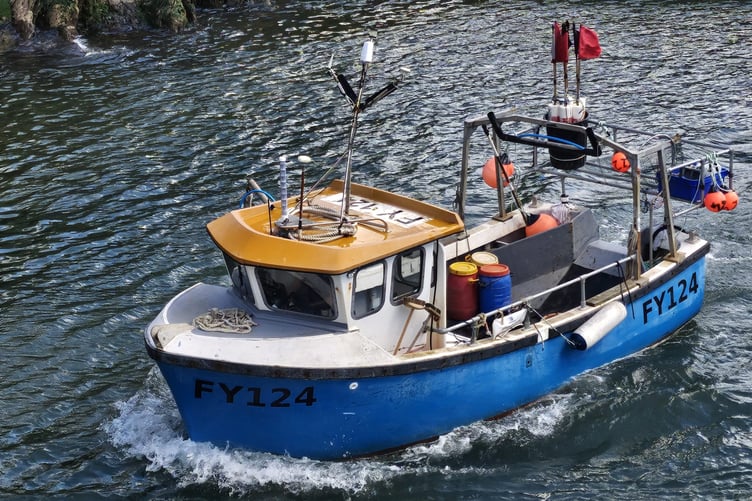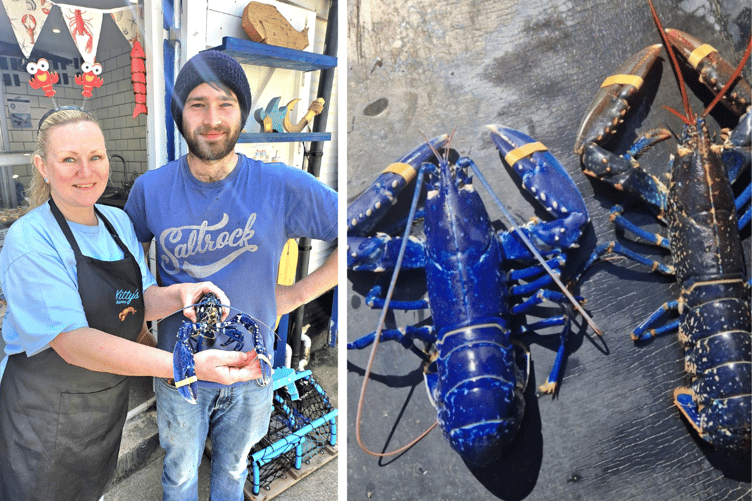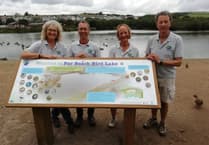AN extremely rare type of lobster was caught by Polperro-based fisherman earlier this month.
On a weekend in May, Polperro-based fisherman Chris Puckey headed out just off the coast of the seaside village to see what haul he had caught that day.

Whilst scrambling through the many lobsters which were set to be sold at Kitty's Lobster, Crab and Seafood Shack for local people he spotted an almost florescent creature within.
It was a blue lobster!
The chances of coming across one of these startling blue creatures is close to one in two-million.
A typical lobster is green or brown however a rare genetic mutation causes certain specimens to grow to be bright blue – making them very unique and extremely valuable.
Lobsters can come in a variety of other rare colours including red (one in-10 million), yellow (one in 30-million) or albino (one in 100-million).
Despite being a prized delicacy, many fisherman who are lucky enough to catch them in their pots are known to release them back into the wild or hand them over to an aquarium or sanctuary to help protect them.
These lobsters can live to be 50 years old and are commonly found in the Atlantic coasts of North America and Europe.
Amazed at the chances of finding the lobster and worried that it might be caught again by another fisherman or possibly eaten, Chris and Jacquie Spencer, owner of Kitty's Lobster, Crab and Seafood Shack, made a call to the local aquarium.
The aquarium staff suggested that the creature could live its life out in their care in a natural seawater tank where it will be protected from predators.
Jacquie said: “Both Chris and I are overwhelmed by the lobster being pulled up in his pot, it really is a real treat to see one such a vivid blue colour and reportedly only one in two million!
“We considered returning it to the sea but decided it needed to be protected from another pot or predator and the best way to do this was to secure it a home in a local aquarium, which fantastically we were able to do!”





Comments
This article has no comments yet. Be the first to leave a comment.